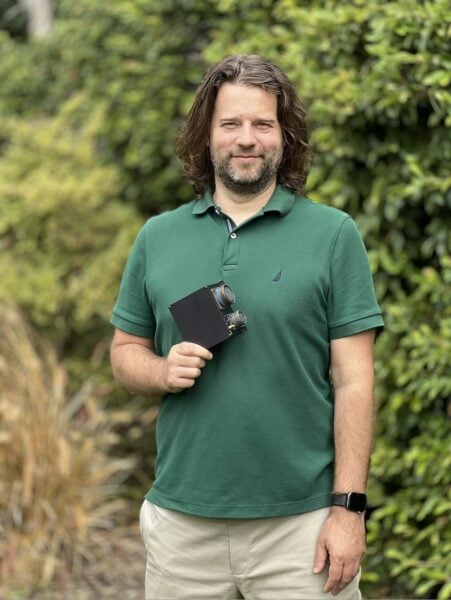Business
Ivan Makarov Advocates for Aerospace Principles to Transform Software Development

The field of software development is on the brink of transformation, as entrepreneur and engineer Ivan Makarov proposes an innovative approach inspired by aerospace engineering principles. Makarov believes that applying the rigorous planning and risk mitigation strategies of aerospace systems can significantly improve software development processes.
Understanding Ivan Makarov’s Background
Originally from Siberia, Makarov has a strong foundation in rocket engineering, having grown up in the city known for the GLONASS navigation satellites. His early passion for embedded systems and robotics led him to create autopilots for drones during his university years, well before the advent of open-source alternatives. This journey culminated in the establishment of a drone engineering company, where he focused on designing reliable and cost-effective drones for remote sensing and geological applications.
Makarov’s experience managing the complexities of aerospace systems on a startup scale has given him a unique perspective. He questions why software engineering cannot adopt the same level of rigor, especially when aerospace engineers have successfully managed intricate systems within limited budgets.
Challenges Facing Modern Software Development
Current software development practices largely rely on agile methodologies, which emphasize rapid iteration over extensive upfront planning. While this approach has addressed some of the issues associated with traditional Waterfall methods, it has also led to new challenges, including structural weaknesses and increased complexity. The introduction of AI coding agents has further complicated matters, as these tools often generate code without the necessary architectural foresight, resulting in fragile systems that struggle to scale.
Makarov highlights the pitfalls of “vibe-coding,” a term that describes the rapid coding style that lacks a robust framework for managing complexity. He argues that without a solid set of requirements and principles of system engineering, AI-generated software projects inevitably reach a complexity threshold beyond which they cannot progress.
Pioneering Requirements-First Development
To address these challenges, Makarov is championing a new paradigm known as requirements-first development. This approach redefines the role of requirements from mere documentation to active, executable inputs that guide the coding process. He refers to this concept as spec2code, advocating that specifications themselves can serve as the foundation for code.
Makarov draws inspiration from the aerospace sector, where the stakes are incredibly high, and any design error can jeopardize entire missions. He contends that today’s advancements in AI technology provide an unprecedented opportunity to apply the same zero-error tolerance principles to general-purpose software development. “Space is the ultimate domain of complexity, where any failure comes at the highest cost,” he explains. “But today’s AI breakthroughs allow us to apply those same zero-error tolerance principles to how we build general-purpose software.”
Envisioning the Future of Software Engineering
Looking ahead, Makarov aspires to facilitate a future in which the creation of complex systems becomes more efficient, affordable, and reliable. By integrating AI with the foundational principles of system engineering, he envisions a landscape where software development is not constrained by chaotic iterations. Instead, comprehensive requirements and thoughtful system design will form the backbone of AI-assisted workflows, empowering small teams and startups to achieve remarkable outcomes.
Ultimately, Makarov sees his role as pivotal in ushering in a new era of digital complexity management. He hopes to pave the way for advancements in technologies that were once considered unattainable, ranging from smarter software solutions to potential applications in the orbital space industry.
In summary, Ivan Makarov’s vision for software development stands as a potential catalyst for change, marrying the rigor of aerospace engineering with the dynamic capabilities of modern technology. As he works to redefine software engineering practices, he aims to unlock new possibilities for innovation, efficiency, and exploration in the years to come.
-

 Health3 months ago
Health3 months agoNeurologist Warns Excessive Use of Supplements Can Harm Brain
-

 Health3 months ago
Health3 months agoFiona Phillips’ Husband Shares Heartfelt Update on Her Alzheimer’s Journey
-

 Science1 month ago
Science1 month agoBrian Cox Addresses Claims of Alien Probe in 3I/ATLAS Discovery
-

 Science1 month ago
Science1 month agoNASA Investigates Unusual Comet 3I/ATLAS; New Findings Emerge
-

 Science1 month ago
Science1 month agoScientists Examine 3I/ATLAS: Alien Artifact or Cosmic Oddity?
-

 Science1 month ago
Science1 month agoNASA Investigates Speedy Object 3I/ATLAS, Sparking Speculation
-

 Entertainment5 months ago
Entertainment5 months agoKerry Katona Discusses Future Baby Plans and Brian McFadden’s Wedding
-

 Entertainment4 months ago
Entertainment4 months agoEmmerdale Faces Tension as Dylan and April’s Lives Hang in the Balance
-

 World3 months ago
World3 months agoCole Palmer’s Cryptic Message to Kobbie Mainoo Following Loan Talks
-

 Science1 month ago
Science1 month agoNASA Scientists Explore Origins of 3I/ATLAS, a Fast-Moving Visitor
-

 Entertainment2 months ago
Entertainment2 months agoLewis Cope Addresses Accusations of Dance Training Advantage
-

 Entertainment3 months ago
Entertainment3 months agoMajor Cast Changes at Coronation Street: Exits and Returns in 2025









